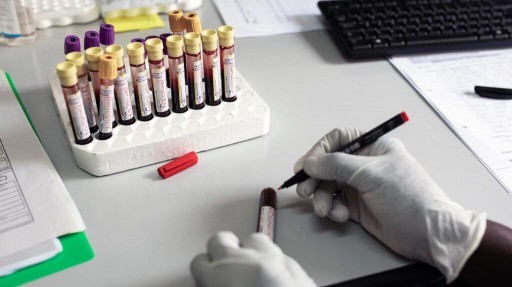- Ashwagandha is a popular supplement that can purportedly boost brain function, manage anxiety, reduce inflammation, and more.
- There’s little evidence to support long-term use of the supplement, according to the National Center for Complementary and Integrative Health.
- Experts note that if a person takes the correct dosage of ashwagandha and is monitored by a doctor, the drug should be safe and effective for months.
Ashwagandha has become one of the internet’s favorite supplements, but does that mean it deserves a place in your daily health routine?
The botanical supplement has several reported health benefits, ranging from stress reduction and improved mental health to improved fertility and decreased blood sugar.
While ashwagandha’s benefits sound appealing, it’s important that people take the supplement safely. As is the case with any medication or supplement, people should make sure they’re taking a proper dosage with the correct frequency before adding ashwagandha to their regimen.
And, in general, ashwagandha shouldn’t be taken long-term.
Most literature points to using ashwagandha for about three months, though if monitored, it’s possible that it could be taken for a year, or even perhaps a bit longer, said Ryan Barish, MD, functional medicine physician in the department of integrative medicine at Henry Ford Health.
“There’s a lot of variability with that,” he told Health.
Here’s what experts had to say about ashwagandha’s effects on the body, why it may not be safe for long-term use, and who may want to avoid the supplement.

Getty Images / Eugeniusz Dudzinski
What Is Ashwagandha?
Also known as Withania somnifera or Indian ginseng, ashwaganda is a small, evergreen shrub native to Africa, India, and the Middle East.
It can be used in cooking or teas, and it can also be taken as a supplement, which makes it more potent. It’s an important herb in Ayurveda, which is a traditional form of alternative medicine.
“Ashwagandha is a well-known and widely used botanical [or] herb in the Indian system of medicine,” Ikhlas Khan, PhD, director of the National Center for Natural Products Research at the University of Mississippi, told Health in a statement.
“The exact function is not known,” he said, “but it is used as an adaptogen.”
Besides simply being used to relieve stress or anxiety, some research has linked ashwagandha use to a number of wide-ranging health benefits, including protecting against cancer, diabetes, cognitive issues, and inflammation. Ashwagandha may also help with building muscle, infertility, and sleep disorders.
Barish added that ashwagandha can be useful in balancing hormones, particularly for people who are experiencing an under-active thyroid, and may also be helpful for certain weight circumstances.
Though there may be some far-fetched claims about ashwagandha, for the most part, there are studies backing up the botanical’s anti-stress, neuroprotective, and other health benefits.
It is considered generally “safe and effective,” said Barish.
However, more research is still needed to confirm some clinical information.
“Ashwagandha has been used traditionally, but specific dosage and safety evaluation still needs to be done,” Khan said.
Supplements That Should Not Be Mixed
How Much Ashwagandha Should You Take, and For How Long?
Determining how much ashwagandha people should take can be a bit complicated since dosages depend on the formulation of each ashwagandha supplement.
“Root extracts such as KSM, Shoden, and Sensoril ashwagandha contain higher amounts of the bioactive components called withanolides,” Lacey Dunn, RD, LD, CPT, author of The Women’s Guide to Hormonal Harmony and owner of UpliftFit Nutrition and NourishWell Nutrition, told Health.
Ashwagandha supplements with a higher percentage of withanolides will be more potent than those with a lower percentage, Barish explained.
“You really don’t know milligram-for-milligram exactly what the percent is,” he said. “Because a lot of these companies won’t disclose that. It’s hard to know dosing.”
Not only do ashwagandha supplements vary in terms of potency, but there’s also a wide range of how many milligrams people take each day.
One review found that, across studies, participants were instructed to take as low as 120 milligrams (mg) and as high as 1,250 mg of ashwagandha daily.
“The average dose shown in studies is around 600mg per day,” Nicole Ibarra, RD, nutrition coach and founder of Altitude Nutrition and Fitness, told Health. “You can take that in one or two doses, depending on the amount per capsule of the supplement.”
In Barish’s experience, the ashwagandha supplements he sees usually range from 200 mg to 700 or 800 mg per pill.
In general, taking more ashwagandha does not lead to more benefits, said Dunn, and the ideal dosage depends on each individual person.
The amount of time that someone takes ashwagandha also varies from person to person.
Other supplements—such as vitamin D—can be taken frequently throughout the course of people’s lives, but Barish explained this isn’t the case for ashwagandha.
According to the National Center for Complementary and Integrative Health, ashwagandha can be taken safely in the short term, or for three months. The organization said there’s not enough evidence to draw conclusions about long-term safety.
Taking Ashwagandha Safely
Though ashwagandha is generally regarded as safe for most people, having certain conditions or taking too much of it can be dangerous.
“Taking too much ashwagandha can cause sleepiness, especially if taking higher doses or higher concentration extracts,” Dunn said. “For some women, it can increase facial hair in those sensitive to higher testosterone levels. Some complaints of taking too much also include gastrointestinal distress and fatigue.”
There have been rare reports of liver toxicity due to ashwagandha consumption, including one case report from February of a patient who reported taking ashwagandha for a year before becoming sick.
Additionally, there are people who shouldn’t take ashwagandha due to the medications they’re taking, or because of an underlying health condition.
“Some medications that have interactions with ashwagandha are antidiabetic medications, antihypertensives, immunosuppressants, anticonvulsants, and thyroid medication,” Ibarra said.
Because of the variability of ashwagandha’s effects on the body, the dosage options, and possible side effects, it’s important that people take the supplement safely and if at all possible, with the guidance of a health provider, experts agreed.
“Everyone should be mindful when they consume botanicals and remember that these products are supplements, not medicines,” said Khan. “Consult your physicians if you are taking prescription medicine as well as supplements.”
The 10 Best Turmeric Supplements to Help Fight Inflammation, According to Experts







